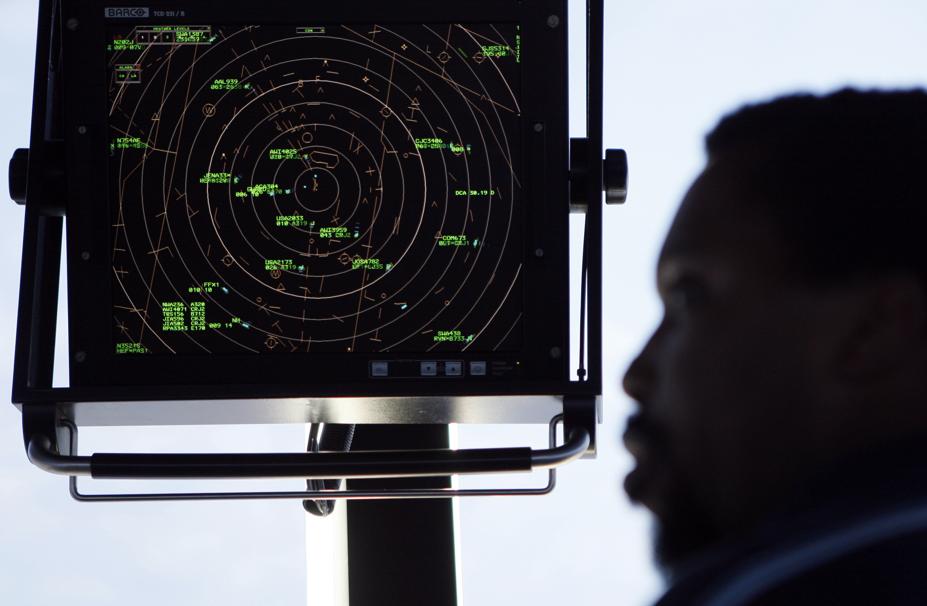
WASHINGTON — The US air-traffic control system would be spun off to a nonprofit corporation and airline passengers wouldn’t be allowed to talk on mobile phones under sweeping legislation unveiled Wednesday to set aviation policy for the next six years.
The job of guiding planes would be taken away from the Federal Aviation Administration and put under the auspices of a new nonprofit funded by fees on commercial flights that would replace most current airline taxes, said Representative Bill Shuster, chairman of the House Transportation and Infrastructure Committee.
“I believe that what we are doing is taking this organization out of a bureaucracy that doesn’t manage the costs well,’’ said Shuster, a Pennsylvania Republican. “Taking it out, I think, you can have a much more efficient corporation.’’
The measure Shuster introduced also would ban passengers from talking on mobile phones while in the air, force carriers to refund bag fees if luggage arrives too late, and overhaul the way new aircraft are approved to make US manufacturers more competitive.
After Shuster’s press conference, the National Air Traffic Controllers Association, a union representing almost 15,000 controllers, announced it was supporting Shuster. The stance was a break in a decades-long policy opposing such a move.
Democrats on Shuster’s committee called the plan poorly designed and said such a major transition may cause delays in the adoption of new air-traffic technology known as NextGen, which uses satellite-based navigation instead of radars.
“I believe that at this critical point in acquiring the NextGen technology, that it would be a huge disruption and a setback for that progress,’’ Representative Peter DeFazio, an Oregon Democrat who is his party’s highest-ranking member on the committee, said in a briefing.
DeFazio said he plans to introduce separate amendments when the bill is debated next week that would reform the FAA without splitting off its air-traffic function.
The legislation will test Shuster’s reputation for mustering broad support on transportation measures in an increasingly divided Congress.
Shuster said the measure would remove the system from political interference and federal budget woes, thereby making it more efficient and able to adopt new technology. The FAA would continue to set air-traffic regulations and provide safety oversight. He said he plans to hold a hearing next week.
The last time lawmakers took up an FAA bill it was mired in years of delay that led to a partial agency shutdown in 2011 before it became law in 2012. The FAA was also disrupted in 2013 by automatic budget cuts known as sequestration, triggering furloughs of air-traffic controllers and flight delays. The law authorizing the FAA allows the agency to operate through March 31.
Giving the new nonprofit the ability to raise money by fees would smooth the agency’s funding issues, Shuster said. One of the reasons some lawmakers oppose the proposal is that it would reduce their control over the agency’s budget, he said.
Private aircraft owners, including business-jet operators, would be exempt from the fees, retaining existing fuel taxes so they wouldn’t pay more under the new system, he said.
The chairmen of the budget-writing appropriations committees, Senator Thad Cochran, a Mississippi Republican, and Representative Hal Rogers, a Kentucky Republican, have each gone on record opposing the plan.
“While FAA can and should improve and accelerate the development of modernized air-traffic systems, we do not believe the solution is less oversight and less accountability,’’ Rogers and three other Appropriations leaders wrote in a letter Monday to House leadership.
The Air Line Pilots Association, the largest pilot union, said it would not endorse the legislation because it fails to advance aviation safety. The group said the measure doesn’t address the serious risks presented by the unregulated carriage of lithium batteries, creates an unfair funding system for the new air-traffic organization, and fails to protect access to the cockpit through reinforced doors.
DeFazio vowed to include language allowing the government to enact stricter rules on bulk lithium battery shipments.
Most US airlines support Shuster’s plan, the Airlines for America trade group said.



